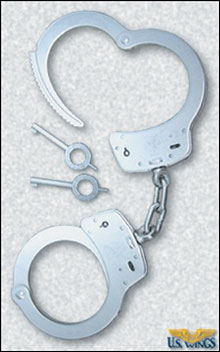
The Corrections Department had refused at
first to allow the interviews and had resisted
much of the voter-registration event.
|
“Yeah, I’ve seen it,” Patrick Dorney said. “Mental, verbal, physical — I’ve seen a lot of different types of abuse.”
Dorney and I sat on the cold metal stools of a Maine State Prison dining room, putting our heads close and lowering our voices as prison guards and officials hovered not far away.
Although I had already written a lot about abuse in the prison, this May 21 interview with Dorney, a 28-year-old Portland man serving 20 years for assault, was what I had been waiting for: my first conversation with a Maine inmate in a year and a half that had not been closely monitored by prison officials.
The interview had come about because the prison was showing off 10 prisoners to a group of reporters. They had been among 142 men who had registered to vote (or, already registered, had asked for absentee ballots) in three inmate political-education sessions organized by the National Association for the Advancement of Colored People, which has a chapter in the prison. Representatives of the Democratic, Republican, and Green Independent parties had spoken to the prisoners.
The NAACP had gone through a struggle to arrange for this voter-registration drive. The state at first had resisted much of what the NAACP had proposed for the day’s activities and had refused to allow the interviews until the press protested. “You wouldn’t believe the hoops they’ve put us through,” said Rachel Talbot Ross, president of the Portland NAACP chapter.
I believed it. Since late 2006, the Corrections Department — reacting to my stories about inmate abuse — has insisted on monitoring interviews with inmates and censoring questions, conditions that inmates tell me intimidate them and discourage them from telling me the full story of what life is really like in the prison. The department also transferred my primary inmate informant to a Supermax in Maryland.
But this occasion, just an hour or so long, was a rare opportunity to get uncensored testimony about claims made by disgruntled guards, ex-prisoners, and inmates who had managed to get letters to me — and, on the other hand, to try to verify what the officials had been saying.
Recently, Corrections officials had claimed they had dramatically reduced prisoner “extractions,” in which members of a body-armored SWAT team charge into a cell spraying Mace and wielding a shield to knock a prisoner flat. The department said the number of those incidents had dropped from 133 in 2005 to only two in 2007.
“I doubt that,” responded inmate Michael Chasse, looking shocked when I asked him if this could be true. “Two a year? I hear about people getting extracted all the time.”
Chasse, 33, from Lewiston, is serving 40 years for robbery and attempted escape. He had been out of the Supermax for only five months, he said, after eight years there.
He had other information that contradicted the department’s assertions. In lobbying last year for more funding and for approval to ship 125 inmates to a corporate prison in Oklahoma, Corrections commissioner Martin Magnusson had told legislators that 13 gangs operated inside the prison. But there are no active gangs, Chasse maintained. A number of other prison sources had said the same.
“There are no gangs here at the Maine State Prison or anything close,” inmate Michael Parker, the NAACP chapter president, had told me a couple of weeks previously. To test the censorship rules, I had interviewed him in a conversation monitored by the warden’s assistant.
In that interview, the handsome, well-spoken Parker, a 31-year-old African American serving 20 years for robbery and assault, had been critical of the prison on many counts, alleging physical abuse at the hands of guards (for which he was suing them in federal court), discrimination by authorities against the NAACP chapter, racial slurs by guards, and an “overzealous officer in his ‘pat’ searches.”
Nevertheless, when I briefly saw Parker as the voter-registration interviews ended, he mentioned there were “lots of things” that because of the monitoring he hadn’t been able to tell me in our previous interview.
Time and again, I have been blocked from getting and verifying information. Yet on May 21 the state allowed eight reporters and cameramen to meet relatively freely with prisoners. This break in the wall of prison censorship took place because more media than just the Phoenix had pushed for access to this unusual voter-registration event. (Maine and Vermont are the only states to allow felons to vote.)
Also, to judge by the friendly way prison officials escorted the news media around the prison, the department and the governor’s office — which had gotten involved in dealing with the press’s requests — must have finally reasoned that this voter drive could produce favorable public relations, which it did.
Ironically, however, the press had had to push to be able to report a PR success for the department — so high are the barbed-wire-topped walls of the Maine State Prison and the Department of Corrections to public access and verification of the truth.
Draw your own conclusion . . .
Of the 142 inmates of the Maine State Prison who on May 21 signed voter-registration cards or requested absentee ballots, 71 identified themselves as Democrats, 26 as Green Independents, and 24 as Republicans. The unenrolled or “Independents” numbered 21.
Source: Maine Secretary of State’s Office
Lance Tapley can be reached atltapley@roadrunner.com.